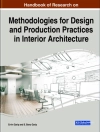Through Islamic Architecture Today and Tomorrow, established experts, designers, and newer scholars from the world of ‘Islamic architecture’, broadly conceived, consider the field’s changing nature and continued relevance in our rapidly globalizing context. Reflective essays address the meaning of ‘Islamic’ in built environments, as well as the geographical, chronological, and disciplinary diversity of a dynamic field of study that encompasses far more than mosques and tombs. Essays address the use and interpretation of historic structures and spaces, in addition to contemporary design, conservation, and touristic experience, as well as research, publication, and pedagogical practices.
It introduces scholars and practitioners to the state of Islamic architecture as a field of inquiry and provides a snapshot of the issues and challenges facing the field today. Looking forward, it invites readers to consider built environments in Islamic contexts as integral to global systems from an interdisciplinary and inclusive perspective. While this volume offers nuanced perspectives on a host of pressing questions, it ultimately aims to advance a necessarily on-going conversation.
The book will have wide appeal among architectural historians, art historians, and other scholars working on material in the traditional Islamic regions of the world (North Africa, the Middle East, and South Asia) and beyond, as well as scholars of religion and society. Practicing architects, landscape architects, planners, preservationists, and heritage managers in the regions addressed may also be interested in the volume. Essays have been written with non-specialist and student readers in mind. Undergraduate, graduate, and design students may use selected essays, or the entire collection, in university or graduate school coursework in architecture and Middle Eastern or Islamic studies.
Daftar Isi
List of Figures
Acknowledgements
Introduction: The Changed and Changing Field of ‘Islamic Architecture’ – Mohammad Gharipour and Daniel E. Coslett
Part 1. Research and Scholarship
Chapter 1. The Study of Islamic Architecture: Reflections on an Expanding Field – Sheila S. Blair and Jonathan M. Bloom
Chapter 2. Widening the Horizons for the Study of Islamic Architecture – Bernard O’Kane
Chapter 3. Modern Architecture and Colonialism in the Islamic World 43 – Brian L. Mc Laren
Part 2. Scope and Scale
Chapter 4. From Garden to Landscape: Lessons from the Taj and the Alhambra – D. Fairchild Ruggles
Chapter 5. Invisible Geographies in the Study of Islamic Architecture – Abidin Kusno
Chapter 6. Silencing Palestinian Architectural History in Israel: Reflections on Scholarship and Activism – Alona Nitzan-Shiftan
Chapter 7. Islamic Architecture in the Americas: Advancing a Transregional and Hemispheric Approach – Caroline ‘Olivia’ M. Wolf
Part 3. Historiography and Context
Chapter 8. Cultural Encounters, Local Practice, and Historical Process in the Ancient Middle East – Dell Upton
Chapter 9. Neo-Eurocentrism and Science: Implications for the Historiography of Islamic Art and Architecture – Samer Akkach
Chapter 10. Carving an Epistemological Space for Southeast Asia: Historiographical and Critical Engagements – Imran bin Tajudeen
Part 4. Fieldwork and Documentation
Chapter 11. A Field without Fieldwork: Sustaining the Study of Islamic Architecture in the Twenty-First Century – Nancy Um
Chapter 12. Architectural History in Turkey: Between Fieldwork and Archival Research – Patricia Blessing
Chapter 13. Documenting Islamic Architecture: Objectives and Outcomes in a Time of War – Sharon C. Smith
Part 5. Education and Pedagogy
Chapter 14. Reorienting Perspectives: Why I Do Not Teach a Course Titled ‘Islamic Architecture’ – Jelena Bogdanović
Chapter 15. Decolonizing Architectural Knowledge: Situating Middle Eastern Pedagogies in a Globalizing World – Ashraf M. Salama
Chapter 16. Educating the Public about Islamic Art and Architecture through Museums – Sheila R. Canby
Part 6. Curation and Publication
Chapter 17. Displaying Islamic Arts in Global Cities – Jorge Correia
Chapter 18. Curating the ‘Islamic’: The Personal and the Political – Leslee Katrina Michelsen
Chapter 19. Islamic Architecture on the Move: Publishing Architectural History in the Digital Age – Nancy Micklewright
Chapter 20. Illustrating Islamic Architecture: On Visual Presentation and Scholarship – Lorenz Korn
Part 7. Globalization and Change
Chapter 21. Uneven Geographies and Neoliberal Urban Transformation in Arab Cities – Rami F. Daher
Chapter 22. Affection for Nouvel Architecture: On Contemporary (Islamic) Architecture and Affect – Şebnem Yücel
Chapter 23. The ‘Islamic-Modern’ Project in this Age of Uncertainty – Vikramaditya Prakash
Part 8. Experience and Use
Chapter 24. The Tourist Gaze, Visiting Mosques, and the Folds of Architecture – Elif Kalaycıoğlu and Waleed Hazbun
Chapter 25. Decolonizing the Conservation of Islamic Built Heritage in Egypt – Hossam Mahdy
Chapter 26. (Dis)placement and Placemaking: Reconsidering Islamic Architecture through Refugee Agency – Kıvanç Kılınç and Bülent Batuman
Part 9. Practice and Profession
Chapter 27. ‘Islamic Architecture’ and the Profession – Nasser Rabbat
Chapter 28. A Trinity of Values in Architecture for Muslim Societies – Rasem Badran
Chapter 29. Relevance, Tradition, and Practice in Islamic Architecture – Kamil Khan Mumtaz
Chapter 30. Architectural Competitions: Creating Dialogues and Promoting Excellence – Hasan-Uddin Khan
Contributor Biographies
Index
Tentang Penulis
Mohammad Gharipour is professor of architecture and director of the Graduate Architecture Program at the Morgan State University School of Architecture and Planning in Baltimore, Maryland. He obtained his master’s degree in architecture from the University of Tehran and his Ph.D. in architecture from the Georgia Institute of Technology. He has published eleven books, including Persian Gardens and Pavilions: Reflections in Poetry, Arts and History (I.B. Tauris, 2013), Synagogues of the Islamic World (Edinburgh University Press, 2017), Gardens of Renaissance Europe and the Islamic Empires (Pennsylvania State University Press, 2017), and Architectural Dynamics in Pre-Revolutionary Iran (Intellect, 2019). Gharipour is the director and founding editor of the International Journal of Islamic Architecture.
Contact: School of Architecture and Planning, Morgan State University, 1700 East Cold Spring Lane, Baltimore, MD 21251, United States.












